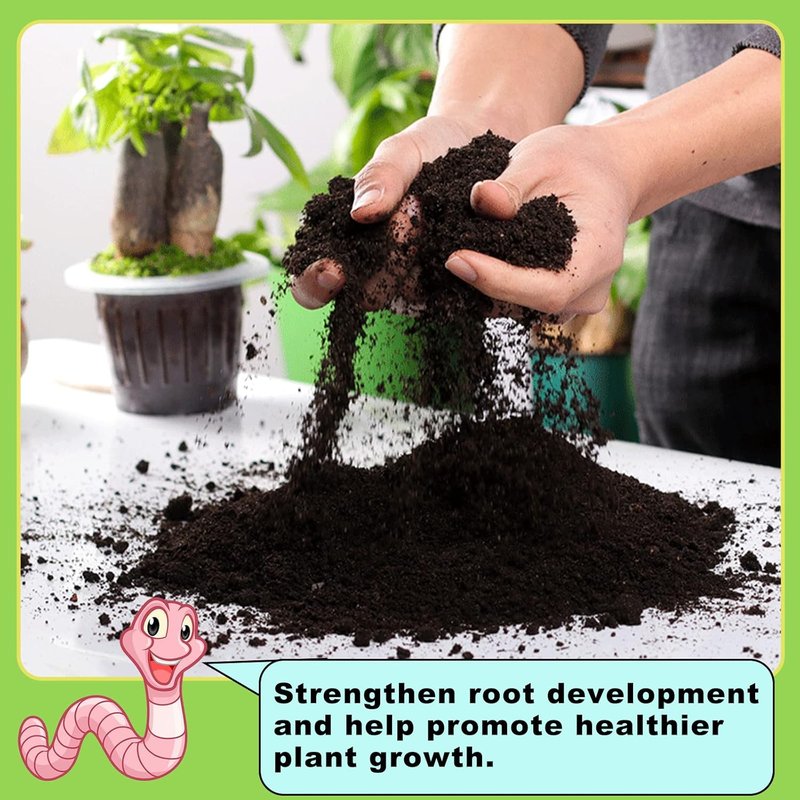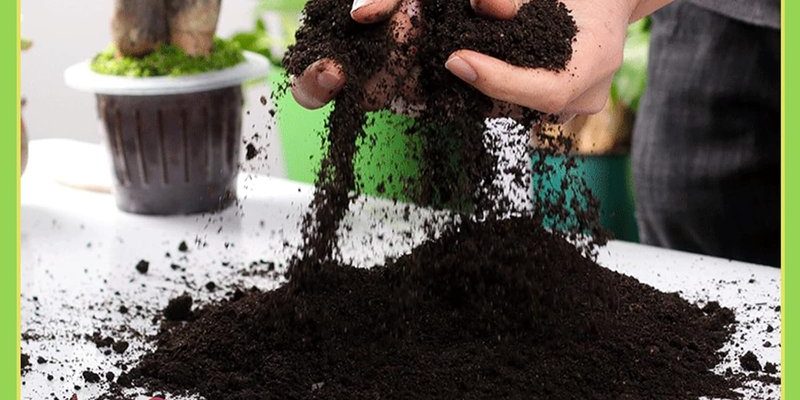
Earthworm castings are nature’s way of giving back. Think of them as a superfood for your plants. They’re slow-releasing, nutrient-rich, and help improve soil health over time. In contrast, synthetic fertilizers are like energy drinks for plants—packed with nutrients that give an instant boost. But there can be some trade-offs. Let’s dig deeper into both options, so you can choose the best for your gardening needs.
What Are Earthworm Castings?
Earthworm castings refer to the nutrient-rich organic matter that worms produce after ingesting soil and decomposing organic material. To put it simply, when earthworms munch on bits of plant matter and soil, they break it down and excrete it in a form that’s super beneficial for plants. You might think of it like a composting process, but done by nature’s little recyclers.
These castings contain essential nutrients such as nitrogen, phosphorus, and potassium, along with a variety of micronutrients. What really makes them special, though, is their microbial content. These tiny organisms help your plants absorb nutrients more effectively. Using earthworm castings can be like giving your plants a tasty multivitamin—packed with everything they need to thrive!
Benefits of Earthworm Castings
So, why should you consider using earthworm castings in your garden? Well, they offer a whole slew of benefits:
- Improved Soil Structure: Earthworm castings help aerate the soil, making it easier for roots to grow and access nutrients.
- Slow-Release Nutrients: Unlike synthetic fertilizers that can leach away, the nutrients in castings are released slowly over time, providing a steady source of nourishment.
- Microbial Activity: The microorganisms in castings promote healthy soil biology, which is essential for plant growth.
- Environmentally Friendly: They’re completely natural and won’t harm beneficial insects, making them a great choice for organic gardeners.
Honestly, incorporating earthworm castings into your gardening routine can feel like adding a secret ingredient to your favorite recipe. Your plants might just respond with a big, green thumbs-up!
Understanding Synthetic Fertilizers
Now, let’s chat about synthetic fertilizers. These are man-made products designed to deliver nutrients quickly and efficiently. They come in various forms, like granules or liquid concentrates, and are often high in specific nutrients. Here’s the kicker: synthetic fertilizers can work wonders for a quick plant boost but aren’t without their drawbacks.
You might be wondering what makes synthetic fertilizers tick. They typically contain three main nutrients: nitrogen (N), phosphorus (P), and potassium (K). These are often labeled on the package as a series of three numbers (for example, 10-10-10), indicating the percentage of each nutrient. It’s like a cheat sheet for your plants to get what they need in a hurry!
Benefits of Synthetic Fertilizers
Using synthetic fertilizers has some clear benefits, especially if you’re in a pinch or need to see quick results:
- Fast-Acting: Synthetic fertilizers provide an immediate nutrient boost, which can be great for young plants or during crucial growth stages.
- Precise Nutrient Control: You can easily tailor the nutrient composition to meet specific plant needs, which is useful for specialized gardening.
- Convenience: They’re easy to apply and often come with clear instructions, making them beginner-friendly.
Here’s the thing, though—while synthetic fertilizers can offer that quick fix, over time, they can negatively impact soil health. They often lead to nutrient runoff, which can harm local ecosystems, and they don’t improve soil structure the way earthworm castings do.
Comparing the Sustainability Factor
Sustainability is a hot topic these days, especially when it comes to gardening. Earthworm castings are often praised for their eco-friendly nature. They encourage biodiversity in the soil and support a healthy ecosystem without the use of chemicals. This makes them a fantastic choice for those concerned about their environmental impact.
On the flip side, synthetic fertilizers can lead to soil degradation and water pollution if used excessively. The nutrients can run off into nearby water bodies, causing algal blooms and other environmental issues. If you’re aiming to garden sustainably, earthworm castings might be your best bet.
How to Use Earthworm Castings in Your Garden
If you’re ready to jump on the earthworm casting bandwagon, it’s pretty simple to get started. Here are some easy steps:
1. **Mix with Soil**: Combine a handful of earthworm castings with your garden soil. This can be done when planting new seeds or seedlings.
2. **Top Dressing**: Spread a layer of castings on top of the soil around your plants. This will provide steady nutrients as your plants grow.
3. **Compost Tea**: You can also brew a nutrient-rich “compost tea” by soaking earthworm castings in water for a day or two, then using this liquid to water your plants.
Gardening with earthworm castings can feel like giving your plants a nice, cozy blanket. They’re going to love it!
How to Use Synthetic Fertilizers in Your Garden
If you decide to go down the synthetic fertilizer route, here’s how to use them effectively:
1. **Read the Label**: Always check the product label for the specific nutrient ratios. Make sure it aligns with the needs of your plants.
2. **Timing is Key**: Apply synthetic fertilizers during the growing season when plants are actively absorbing nutrients.
3. **Even Distribution**: Spread it evenly around the base of the plants, and water after application to help activate the nutrients.
Just remember, moderation is crucial. Too much synthetic fertilizer can lead to nutrient burn or even harm your plants—yikes!
Which One Should You Choose?
Now that you know the basics of both **earthworm castings** and synthetic fertilizers, you might still be asking yourself, “Which one is better for me?”
It really depends on your gardening goals. If you’re looking for a natural, long-term solution that nurtures your soil, earthworm castings are a top choice. They’re perfect for organic gardeners or anyone wanting to maintain soil health. On the other hand, if you need a quick fix or are growing plants that require specific nutrient boosts, synthetic fertilizers can do the trick.
Ultimately, some gardeners even find success by using a combination of both. It’s all about finding what works best for your specific setup and preferences.
In a nutshell, the decision boils down to how you want to nurture your garden. Both options have their pros and cons, and understanding the differences can help you cultivate a thriving space filled with healthy plants. So grab your gardening gloves and get started, whether you choose to go natural with earthworm castings or take the quick route with synthetic fertilizers—it’s all about what makes your green thumb happy!

